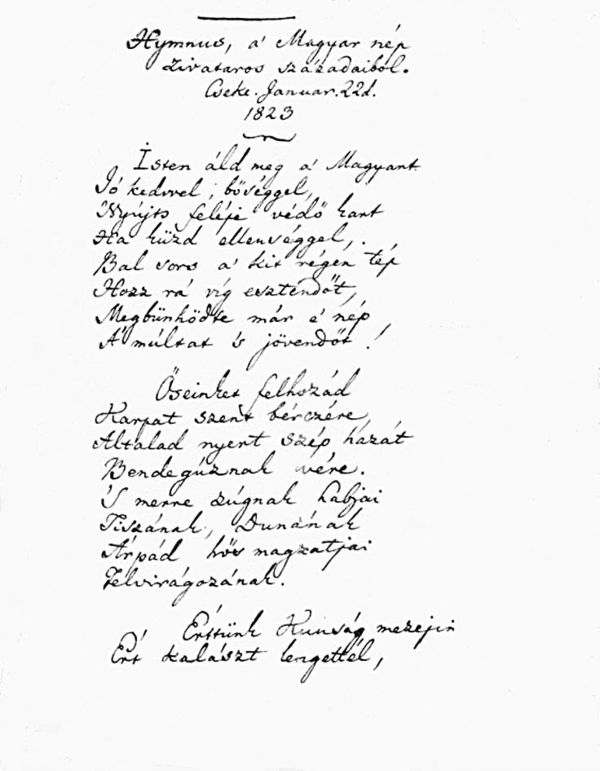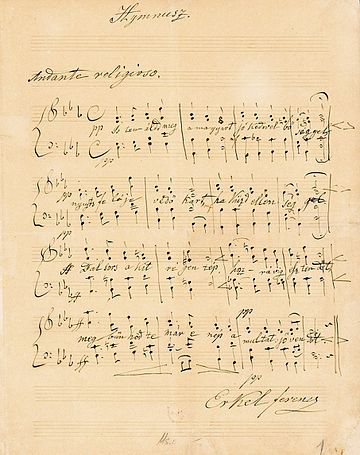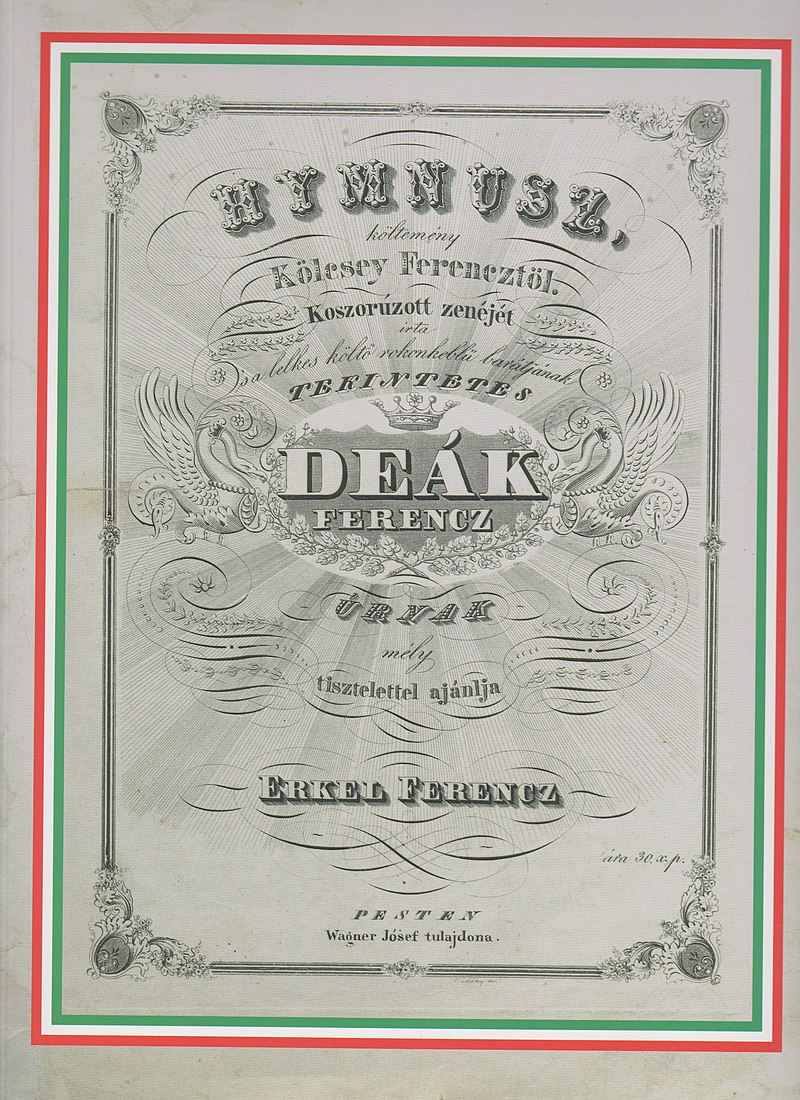On this day in 1823, Ferenc Kölcsey wrote his poem, the national anthem
We celebrate the Day of Hungarian Culture on 22 January when Ferenc Kölcsey completed his most influential poem. The Day of Hungarian Culture is celebrated on 22 January to commemorate the day in 1823 when Ferenc Kölcsey completed his most influential poem, a poem that became the national hymn. We commemorate the birth of the Hymn with an earlier article by Andrea Raffay of the Centre for Historical Research.
Ferenc Kölcsey was born on 8 August 1790 in Sződemeter. "The Kölcsey family is one of the oldest noble families. It is one of the so-called primae occupationalis families, and together with the related Kölcsei Kende family, tradition traces it back to Chieftain Ond", writes Benedek Jancsó in his 1885 monograph on the life and works of Ferenc Kölcsey, in which Jancsó writes at length about the family, since in the case of Ferenc Kölcsey 'the strong love of the fatherland and the nation and the striving for erudition were the legacy of his genealogy'.
Kölcsey lost his father at the age of six and was twelve when he was orphaned after his mother's death. As a young child he contracted smallpox, the complications of which caused him to lose half his sight. After such a background, his childhood and school years, though he was a well-behaved, hard-working pupil, were understandably lonely and sad; he preferred to withdraw and seek solace in books. Throughout his life he was a fragile, sensitive soul and a man of many ailments. Jancsó says of his sentimentalist poems: it was the era of sentimentality: to imagine a blissful life that was no more real than the shadow of the moon, and then to think that this never-existent bliss was lost again, to weep and wail over it in a dignified manner. It was also a sickness of an age that could not feel more deeply and genuinely.

Ferenc Kölcsey was thirty-three years old when, on 22 January 1823, he wrote his poem entitled Hymnus, ' From the stormy centuries of the Hungarian nation in Cseke, where he had composed a large part of his works. Since 1989, 22 January, the date on the manuscript of the Hymn preserved in the National Széchényi Library, has been celebrated as the Day of Hungarian Culture.
Pity, God, the Magyar, then,
Long by waves of danger tossed;
Help him by Thy strong hand when
He on grief's sea may be lost.
Fate, who for so long did'st frown,
Bring him happy times and ways;
Atoning sorrow hath weighed down
All the sins of all his days.
- is the last stanza of Ferenc Kölcsey's Hymn, which is the concluding part of the frame structure of the poem as a variation of the first stanza. In the words of János Horváth, it is the expression of "patriotic guilt, which sees God's just punishment in national misfortune; one of the most striking and profound characteristics of our 16th and 17th century literature."
The Hungarian people have suffered so much that it is no longer in direct proportion to their former sins, and all this misfortune can be turned into a blessing by the mercy of a compassionate God. The Hymn, written by the sensitive soul of Ferenc Kölcsey, is one of the most important symbols of the Christian nation and hence of the Hungarian national consciousness, which Benedek Jancsó calls "national prayer song" in his monograph on Ferenc Kölcsey, and which first appeared in the volume of the Aurora yearbook dated 1829, but published at the end of 1828.

After Mihály Vörösmarty's Appeal was successfully set to music by Béni Egressy in 1843, the composer András Bartay, director of the National Theatre in Pest, suggested that the Hungarians could also have a folk hymn, following the example of the British God Save the King/Queen or the Austrian Gott erhalte. The competition was announced in the March 3, 1844 issue of János Garay's newspaper, the Regélő Pesti Divatlap: "... this year a prize of 20 gold coins will be awarded for the best folk melody with vocals and orchestra - to the Hymn of our poet Ferencz Kölcsey... The deadline for submissions is the first day of May 1844..." On 15 June 1844, the jury decided that the winner of the competition was Ferenc Erkel, the composer of the opera, László Hunyadi, which had been premiered the previous year.
The Hymn was first performed at a public ceremony on 10 August 1844, at the launching of the steamship Széchenyi at the shipyard in Óbuda, and at an official state ceremony on 20 August 1848 at the Matthias Church in Buda.

Mátyás Rákosi, who believed that there was a need for a new anthem to replace Ferenc Kölcsey's Hymn, as had been the case with the changes to the Hungarian coat of arms, commissioned Gyula Illyés and Zoltán Kodály to create a "socialist" anthem, but both refused the request. Kodály responded by saying, "Why a new one? The old hymn is good for us".
Throughout our history, the Hungarian national anthem was not made compulsory by any written law until the fall of Communis; it was only sung by custom. It was incorporated into Hungarian law only in 1989. Article 36 of Act XXXI, which came into force on 23 October 1989, already states that "the national anthem of the Republic of Hungary shall be Ferenc Kölcsey's poem, The Hymn with the music of Ferenc Erkel."